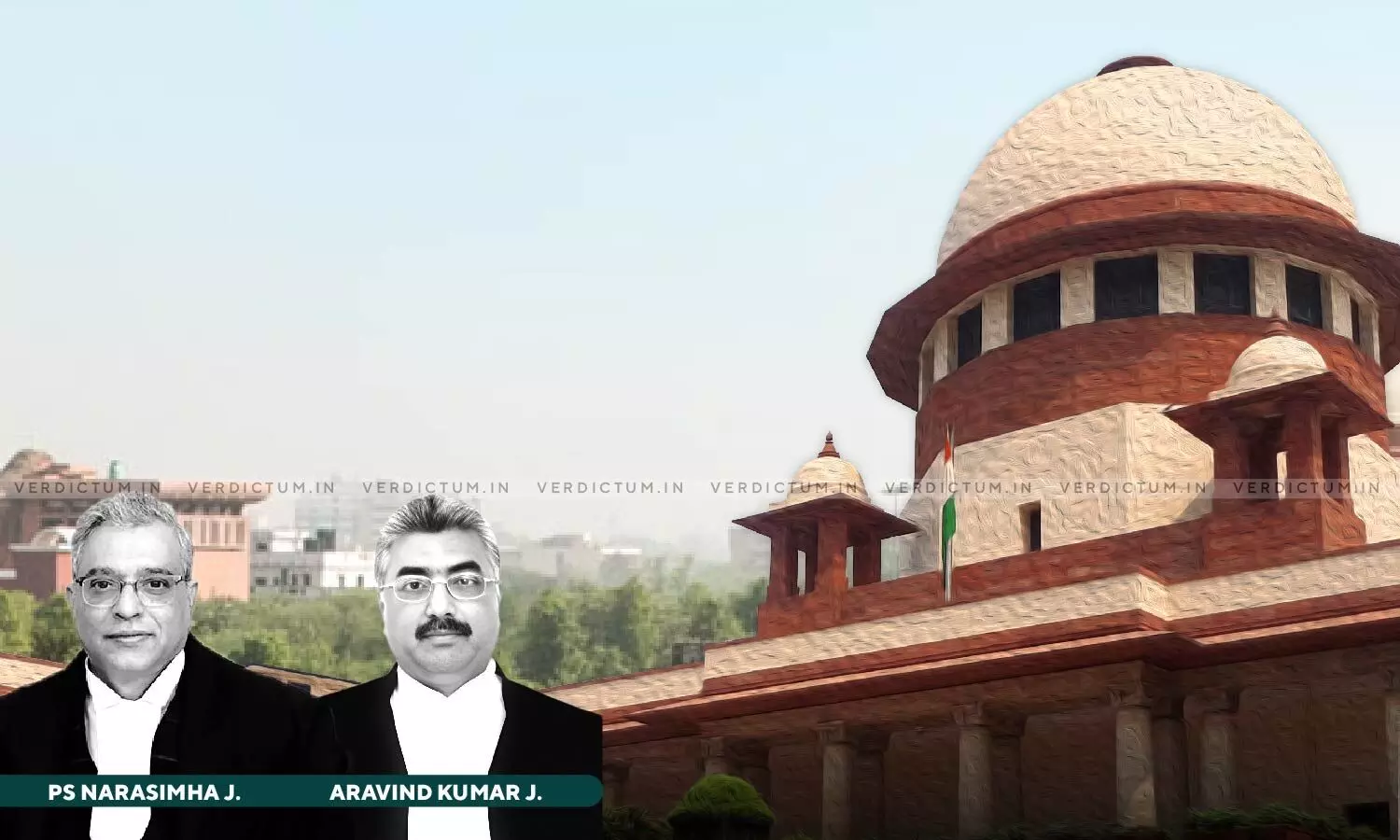
"Much Stronger Evidence Required Than Mere Probability Of Complicity": SC Sets Aside Order Of Summons U/S 319 CrPC
 |
|The Supreme Court reiterated that the degree of satisfaction required to exercise power under Section 319 of the Cr.P.C has to be much stronger than mere probability of complicity.
The Bench examined the legality of summoning orders under Section 319 Cr.P.C. and held that the deposition of a first informant (mother of the deceased), who was not an eye witness, was not sufficient enough to invoke the extraordinary jurisdiction under Section 319 CrPC to summon.
Justice Pamidighantam Sri Narasimha and Justice Aravind Kumar observed, “There are no other witnesses who have deposed against the appellants. There is no documentary evidence that the prosecution had collected against the appellants. There is absolutely no role that is attributed to the appellants. We are of the opinion that the deposition of PW-1 is also in line and consistent with her statement under Section 161. When these factors are looked in a holistic manner, it would be clear that the higher degree of satisfaction that is required for exercising power under Section 319 Cr.P.C. is not met in the present case.”
AOR Preetika Dwivedi represented the appeallnt, while AOR Ankit Goel appeared for the respondents.
The appellants appealed the decision of the Allahabad High Court which dismissed their application under Section 482 Cr.P.C. The Public Prosecutor in this case had filed an application under Section 319 of the Cr.P.C. before the trial court to summon the appellants to face trial in a murder case.
The trial court in turn allowed the application noting that “if the evidence tendered in the course of trial shows that any person not named as an accused has a role to play in the commission of the offence, then he could be summoned to face trial even though he may not have been charge sheeted.”
The mother of the deceased, who was the first informant in this case, had stated that she had a “long-standing enmity” with the family of the appellants. However, in her cross examination, she clarified that the names of the appellants were mentioned in the FIR “on the basis of suspicion.”
The Bench observed that the appellants were named in the first information statement, however, the first informant, in the statement under Section 161 Cr.P.C, clarified that the names of appellants were written in the FIR falsely and without full information. She has also stated that the appellants were not involved in the murder of her son.
Therefore, the Court noted that the change of circumstance which the prosecution sought to contend based on the deposition of the first informant did not satisfy the requirement of Section 319 CrPC at all.
“The degree of satisfaction required to exercise power under Section 319 Cr.P.C. is well settled…the degree of satisfaction that is required to exercise power under Section 319 Cr.P.C. is much stricter, considering that it is a discretionary and an extra-ordinary power. Only when the evidence is strong and reliable, can the power be exercised. It requires much stronger evidence than mere probability of his complicity,” the Court remarked.
Consequently, the Court held that the trial court committed a serious error in allowing the application under Section 319 CrPC and issuing summons to the appellants. Therefore, the High Court should have exercised its jurisdiction under Section 482 and quashed the order.
Accordingly, the Supreme Court allowed the petition.
Cause Title: Shankar v. The State of Uttar Pradesh & Ors. (Neutral Citation: 2024 INSC 366)
Appearance:
Appellant: AOR Preetika Dwivedi; Advocate Abhisek Mohanty
Respondents: AOR Ankit Goel and Yasharth Kant; Advocates Jitendra Kumar Tripathi, Dhawal Uniyal and Nikhil Sharma